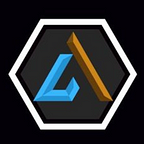Do You Know Steam Deck Gains Proton 7.0
It’s a good time to have the steam Deck due to arrive next week.
If you buy something from a this link, myelectricsparks Media may earn a commission. .
(Image credit: Valve Corporation)
The Valve Steam Deck is fast approaching the release date, the 25th of February. With its launch date shortly, Valve has launched Proton version 7.0 with support for Easy Anti-Cheat, allowing several games to run on Linux, According to Phoronix.
Valve has also announced the Variable Rate Shading to the Linux RDNA2 graphic driver; an open-source driver expected to be available on the Steam Deck later this year.
Proton 7.0
Proton 7.0 is a major upgrade for Valve’s Linux compatibility API ProtonDB and includes the ability to support more titles and updates to the APIs in ProtonDB and much more.
Particularly, Wine is now available in Proton 7.0 is now updated up to version 7.0 as well, and DXVK (Vulkan-based translation layer for Direct3D) has been updated from version 1.9.4 to Version 1.9.4. The new versions include several improvements and bug fixes, particularly for Wine.
For those who aren’t familiar, ProtonDB still relies on other compatibility layers such as DXVK and Wine to fully support Windows games available on The Steam Library. Proton’s task is to automate these compatibility layers’ processes, allowing gamers to enjoy a seamless gaming experience on Linux operating systems.
The most thrilling new feature to get added in Proton 7.0 is the full assistance to Easy Anti-Cheat services from Epic. This is huge, and many titles are today using the service to combat cheaters. However, there’s a caveat with this new feature: Proton can only be used with games with EAC’s Linux component that has EAC enabled. As a result, game developers will have to set their games to run on Linux when they are expected to function.
There are a variety of other enhancements and fixes in Proton 7.0, including support for local decoding of H264 videos and enhanced Steam controllers in Origin games. For all the patches, visit Proton’s GitHub page here.
Here’s the full list of games now supported by Proton because of the latest update:
- Anno 1404
- Call of Juarez
- DCS World Steam Edition
- Disgaea 4 Complete+
- Dungeon Fighter Online
- Epic Roller Coasters XR
- Eternal Return
- Forza Horizon 5
- Gravity Sketch VR
- Monster Hunter Rise
- NecroVisioN
- Nights of Azure
- Oceanhorn: Monster of the Uncharted Seas
- Order of War
- Persona 4 Golden
- Resident Evil 0
- Resident Evil Revelations 2
- Rocksmith 2014 Edition
- SCP: Secret Laboratory
- Wargroove
- Wartales
- Yakuza 4 Remastered
Valve’s Specialized Variable Rate Shading Update
Valve is currently working on an updated version of the Variable Rate Shading in Steam Deck. Steam Deck will arrive in May or June of this year.
The feature is built on the current Variable Rate Shading extension, permitting Valve to alter the behavior of VRS by modifying the behavior of VRS on the fly using the creation of brand new file control. This feature was designed specifically for Steam Deck. Steam Deck to improve the battery life of the console.
Variable Rate Shading is a performance-enhancing technique that reduces resolution in areas where quality isn’t needed. An excellent example is in the city regions in video games, where streets, sidewalks, and walls for building all appear identical and lack many details. VRS can spot these simple details and lower the resolution to reduce the GPU load.
Since VRS is usually a feature that you can turn up and down, it does not have any adjustable sliders for detail; however, Valve has addressed this issue through its control file.
This feature was developed especially for Steam Deck to aggressively turn up the VRS’s capabilities, which can increase battery life or lower it to boost the quality of images.
It’s important to note that the effectiveness of VRS varies between games and between game environments. If, for instance, there’s an abundance of unique particulars in a scene such as grass, VRS’s capabilities will be decreased significantly in comparison to locations with less generalized details.
Therefore, we could be seeing similar effects in Steam Deck. Steam Deck, where certain games consume more power because VRS not as efficient as other games. However, Valve might mitigate this issue by adjusting its VRS implementation. We’ll need to review the product to determine what difference it makes.
This feature will not be restricted just to Steam Deck, thanks to the open-source nature of Vulkan. So technically, any AMD RDNA2 GPU will support this feature when using an operating system based on Linux.
NEWS, PC GUIDES
The Beast Asus ROG Zephyrus G14
NEWS, RASPBERRY PI
